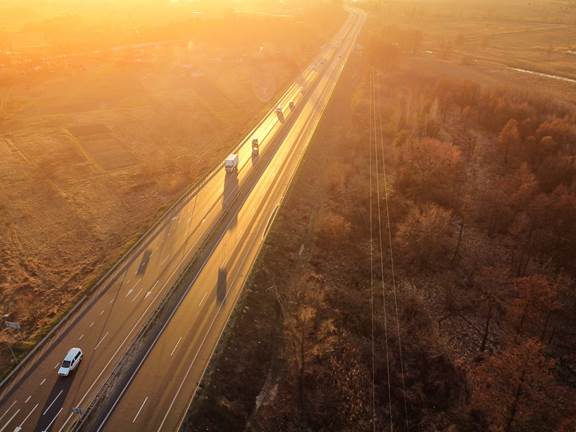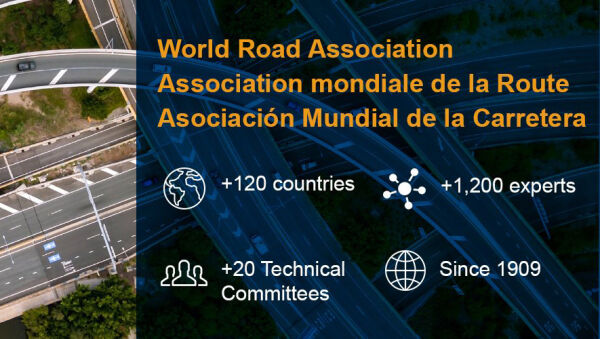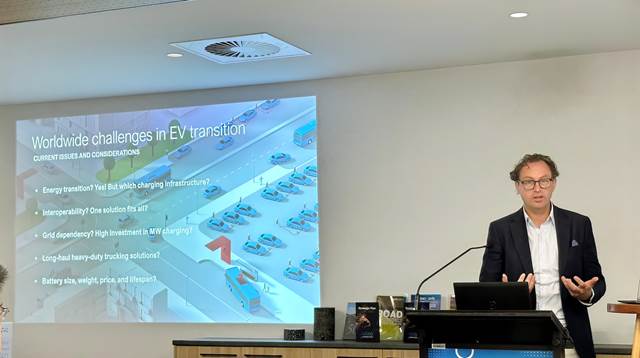
Richard van den Dool's appointed role in sustainable transport solutions.
What if one persons dedication could help drive a global shift toward sustainable transportation?
Richard van den Dool, Vice President Charge - Sales and Business Development at ENRX, is stepping onto the world stage to contribute to this crucial mission. Recently appointed to PIARC's Technical Committee 3.5 on Road Infrastructure for Decarbonisation, Richard is joining forces with international experts to develop practical solutions for reducing emissions and revolutionising road transport.
We sat down with Richard to discuss his new role, what it means for ENRX, and how his contributions to this global team could shape the future of transportation.
Richard, congratulations on your appointment! Can you tell us more about PIARC and what this role means to you?
Thank you! I'm really excited about it. PIARC, the World Road Association, has a rich history, established in 1909. It is a global platform, bringing together governments of 128 member countries, including road authorities, departments of transport or infra, or key players in road & public transportation. My appointment as an associated member and expert to this esteemed committee is a personal honour and an extraordinary chance to contribute to pivotal discussions on decarbonising transport infrastructure.
I'll work with 75 experts in the Technical Committee 3.5 on Road Infrastructure for Decarbonisation, part of a four-year strategic plan to develop sustainable road transport solutions. The work involves collaborating on Electric Road Systems (ERS), Electrification Technologies, and Policies and Strategies to accelerate the global transition to decarbonised road transport. The committee reports twice a year and holds physical meetings along with technical seminars, which the committee leads to sharing knowledge and best practices across the industry.
What are the key areas you'll be working on with the committee?
I'll be involved in three key work groups: Policies and Strategies, Electric Road Systems (ERS), and Electrification Technologies. These areas are central to accelerating the transition to more sustainable road transport. We'll examine everything from how policies can drive adoption to electrification's technical and economic challenges. The goal is to share knowledge and learn from what's working—and what's not—worldwide to create scalable solutions. A key focus for me will be sharing insights and raising awareness about the vast potential of induction technology, which is core to my expertise and crucial for the future of sustainable transport.
How do these discussions align with the work being done at ENRX?
The work we're doing at ENRX perfectly complements the goals of this committee. At ENRX, we're constantly innovating to support the energy transition, primarily focusing on smart energy transfer and electrification solutions. My involvement with PIARC allows us to stay connected to global conversations about how road infrastructure can support decarbonisation. It's a valuable way to return fresh insights and perspectives to ENRX as we continue developing our technologies.
What impact do you hope to have through your work on this committee?
The transport sector accounts for a significant portion of global emissions, so the potential for impact is enormous. By working with experts and decision-makers from different countries, I aim to help shape strategies that can be applied globally and tailored to local needs. Decarbonisation isn't a one-size-fits-all approach, so we must develop flexible and scalable solutions. I'm focused on helping identify the technologies and policies that will significantly impact the short and long-term.
Are there any key trends or challenges in the industry right now that stand out to you?
One of the biggest challenges is balancing innovation with practicality. We're seeing impressive advancements in electric road systems and charging technologies. Still, the key is ensuring that these solutions are interoperable across all vehicle types and sizes while also scalable and economically viable for widespread adoption. Another significant hurdle is infrastructure readiness—many regions still need to upgrade their existing infrastructure to support these emerging technologies. At PIARC, we're focused on tackling these challenges directly, ensuring that progress doesn't compromise accessibility or sustainability.
Looking forward, what excites you most about this role and the future of road transport?
The most exciting part is the potential for real change. Technology is rapidly advancing, but we need global collaboration to bring these innovations to life. Being part of this committee allows me to help guide that process and contribute to strategies that can be implemented worldwide. It's gratifying to know that our work today will impact how we travel and move goods in a carbon-neutral world.

PIARC

Richard van den Dool